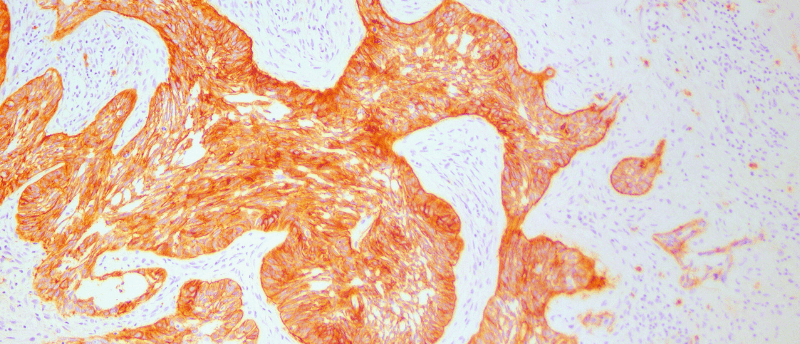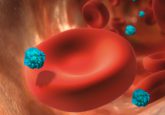Immunohistochemistry-labeled biomarker panel could aid prostate cancer prognosis

Research published in Cancers reveals that intercellular biomarkers labeled via immunohistochemistry could improve grading and prognostic predictions for individuals with prostate cancer.
Currently, prostate cancer is principally assessed using the Gleason grading of hematoxylin and eosin-stained tissue, which measures cell abnormality. This relative abnormality influences the cancer grading (1–5), the higher the score denoting the more likely the cancerous cells will spread.
In this study, the authors discuss how the Gleason grading method can be highly subjective when evaluating the risk of post-prostatectomy clinical recurrence and biochemical recurrence. Therefore, the team investigated the use of specific biomarkers – termed APPL1, sortilin and syndecan-1 – to improve the assessment and prediction of prostate cancer grading. They demonstrated that these biomarkers could help visualize cancerous tissue more effectively helping doctors predict disease outcomes.
The team analyzed tissue samples from 114 individuals with prostate cancer, who each had prostate-specific antigen levels above 0.2ng/ml. The samples were split using two different methods, one group was stained traditionally with hematoxylin and eosin and the other was immunohistochemically labeled with the three biomarkers. Researchers conducted an adjusted analysis and demonstrated that the immunohistochemically labeled group gave more accurate predictions of disease progression than the hematoxylin and eosin-stained group.
It is hoped that these findings uncover the benefits of utilizing biomarkers to aid prostate cancer prediction and prognosis. In the future the team urges further investigation with larger cohorts to access the impact of this biomarker technology.
Source: Logan JM, Hopkins AM, Martini C et al. Prediction of prostate cancer biochemical and clinical recurrence is improved by IHC-assisted grading using APPL1, sortilin and syndecan-1. Cancers. 15(12), 3215 (2023)






